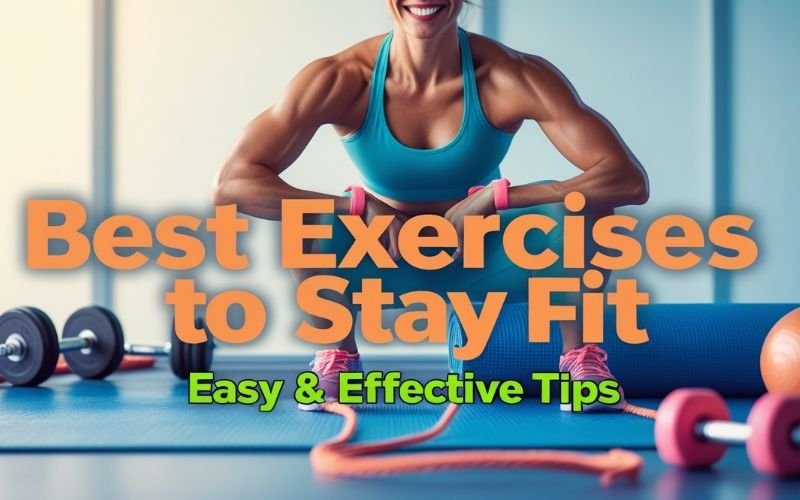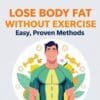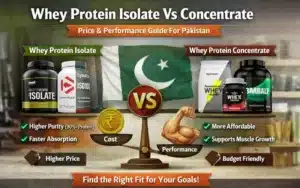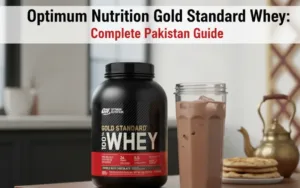No products in the cart.
Return To ShopBest Exercises to Stay Fit – Easy & Effective Tips
Staying fit isn’t just about looking good—it’s about feeling strong, energized, and ready to take on life’s challenges. Regular exercise improves heart health, strengthens muscles, and enhances overall well-being. It reduces stress, keeps weight in check, and even sharpens cognitive function.
Fitness isn’t a destination; it’s a continuous journey that requires consistency and smart choices. Whether you’re just starting or looking to refine your routine, understanding different forms of exercise will help you craft a well-rounded approach to staying fit.
Cardiovascular Workouts: Strengthening the Heart and Lungs
Cardio is the foundation of any fitness plan. It gets the heart pumping, oxygenates the blood, and improves stamina.
- Running, cycling, swimming, and jumping rope are excellent choices to build endurance and enhance cardiovascular health. Even brisk walking for 30 minutes a day can work wonders.
- High-Intensity Interval Training (HIIT) is another effective way to boost heart health in a short amount of time.
- Short bursts of intense activity, followed by rest, maximize calorie burn and keep metabolism elevated even after you’re done exercising.
Whether you prefer a leisurely jog or a heart-pounding sprint session, cardio is crucial for overall fitness.
Strength Training: Building Muscle and Boosting Metabolism
Muscle is your body’s powerhouse. Strength training not only sculpts and tones but also increases your resting metabolic rate, helping you burn calories even when you’re at rest. Lifting weights, resistance band workouts, or even bodyweight exercises like push-ups and squats are fantastic ways to build muscle.
Compound movements such as deadlifts, bench presses, and lunges engage multiple muscle groups at once, making workouts more efficient. For beginners, starting with lighter weights and gradually increasing resistance prevents injuries while ensuring steady progress. Aim for at least two to three sessions per week to reap the benefits of strength training.
Flexibility and Mobility: Keeping Your Body Agile
A flexible body moves more efficiently and is less prone to injuries.
Stretching before and after workouts keeps muscles supple and improves circulation. Yoga and Pilates are excellent practices that enhance flexibility while also strengthening the core.
Dynamic stretches like leg swings and arm circles prepare the body for movement, while static stretches such as hamstring holds improve long-term flexibility.
Mobility drills, which focus on joint health and movement patterns, ensure that your body remains agile and pain-free. Incorporating these into your routine will keep you feeling youthful and active for years to come.
Mind-Body Exercises: Connecting Physical and Mental Wellness
Exercise isn’t just about physical fitness—it’s deeply connected to mental well-being. Activities like yoga, Tai Chi, and meditation-based workouts help reduce stress, increase focus, and improve sleep quality. A strong mind supports a strong body.
Breath control techniques, mindfulness during exercise, and even simple outdoor walks can have a profound impact on reducing anxiety and boosting mood. The more in tune you are with your body, the more rewarding your fitness journey becomes.
Supplements for Enhanced Performance and Recovery
While a balanced diet provides most of the nutrients needed for fitness, supplements can give an added edge. Choosing the right ones can enhance performance, aid muscle recovery, and prevent deficiencies.
- BCAAs (Branched-Chain Amino Acids): These essential amino acids support muscle repair, reduce soreness, and improve endurance. Ideal for those who engage in intense workouts.
- Whey Protein: A fast-absorbing protein source, whey is excellent for muscle recovery and growth. It provides all essential amino acids, making it a complete protein choice.
- Vegan Plant-Protein: For those avoiding dairy, plant-based proteins from peas, rice, or hemp offer a powerful alternative. They support muscle maintenance and overall recovery.
- Creatine: One of the most researched supplements, creatine enhances strength, increases power output, and improves muscle hydration. It’s a must-have for those involved in weightlifting or high-intensity sports.
Supplements should complement a nutritious diet, not replace it. Always prioritize whole foods while using supplements to fill nutritional gaps or improve workout performance.
Making Fitness a Sustainable Habit
Fitness isn’t about quick fixes—it’s about making movement a lifelong commitment. Whether it’s running, lifting weights, or practicing yoga, finding activities you enjoy will make consistency easier.
Stay hydrated, fuel your body with nutritious food, and get enough rest to recover. Progress may be slow, but every workout is a step toward a healthier, stronger version of yourself. Keep moving, stay motivated, and embrace the journey of fitness.









Add comment